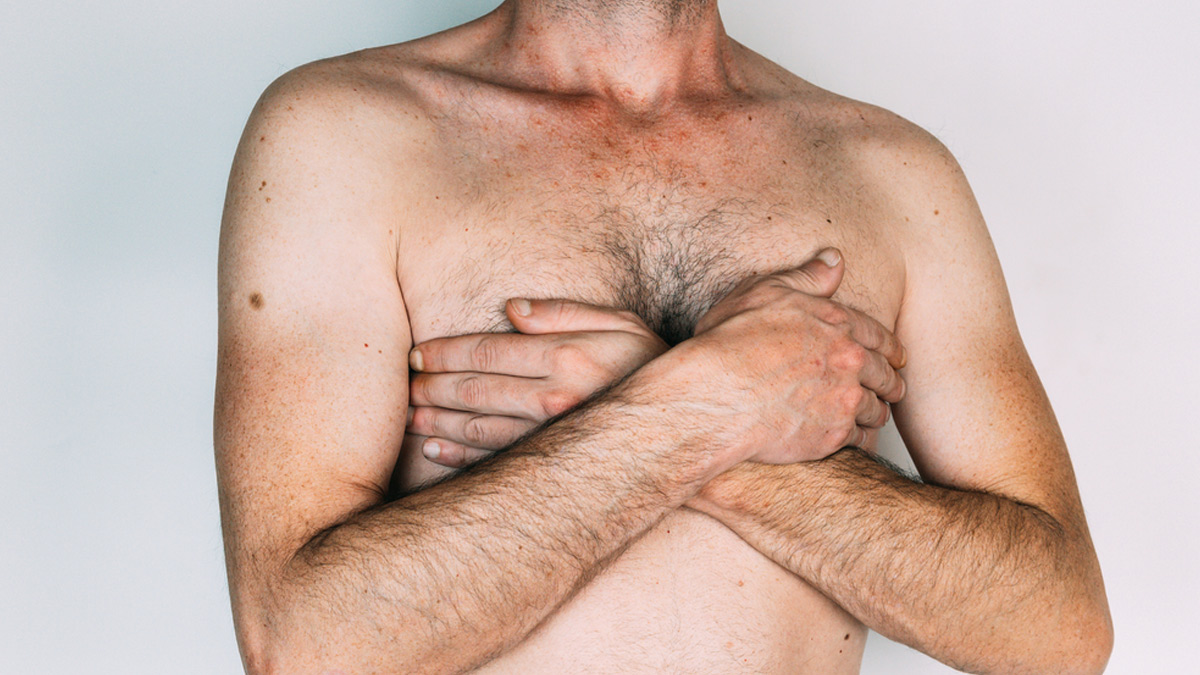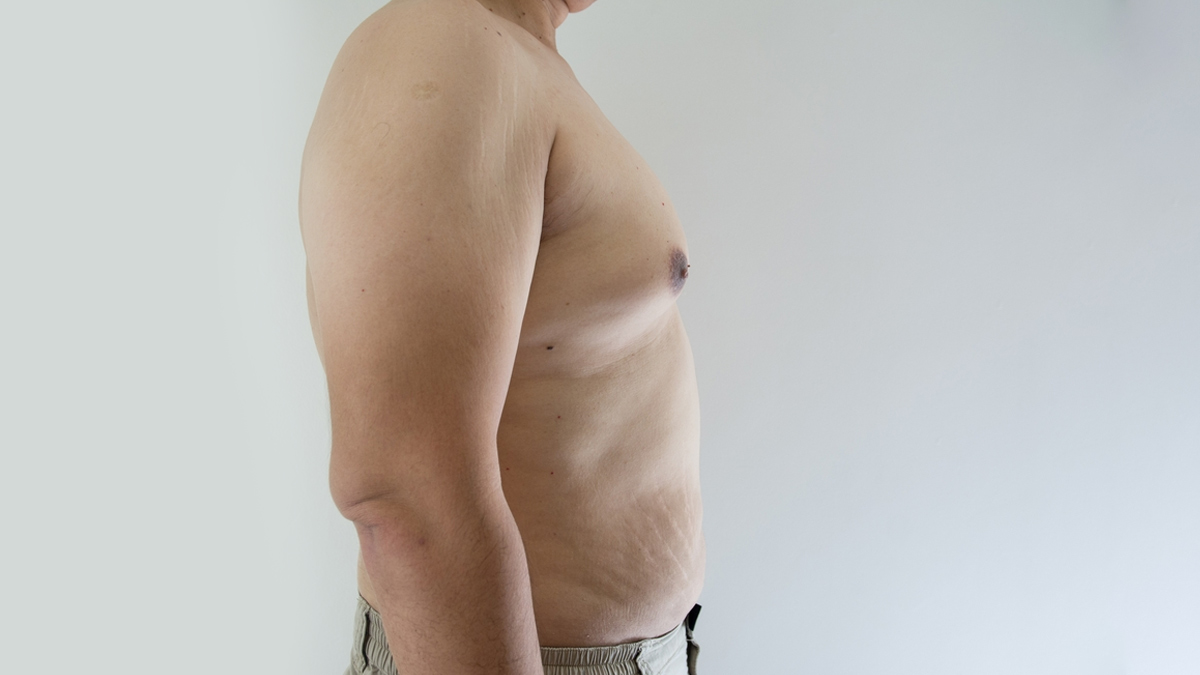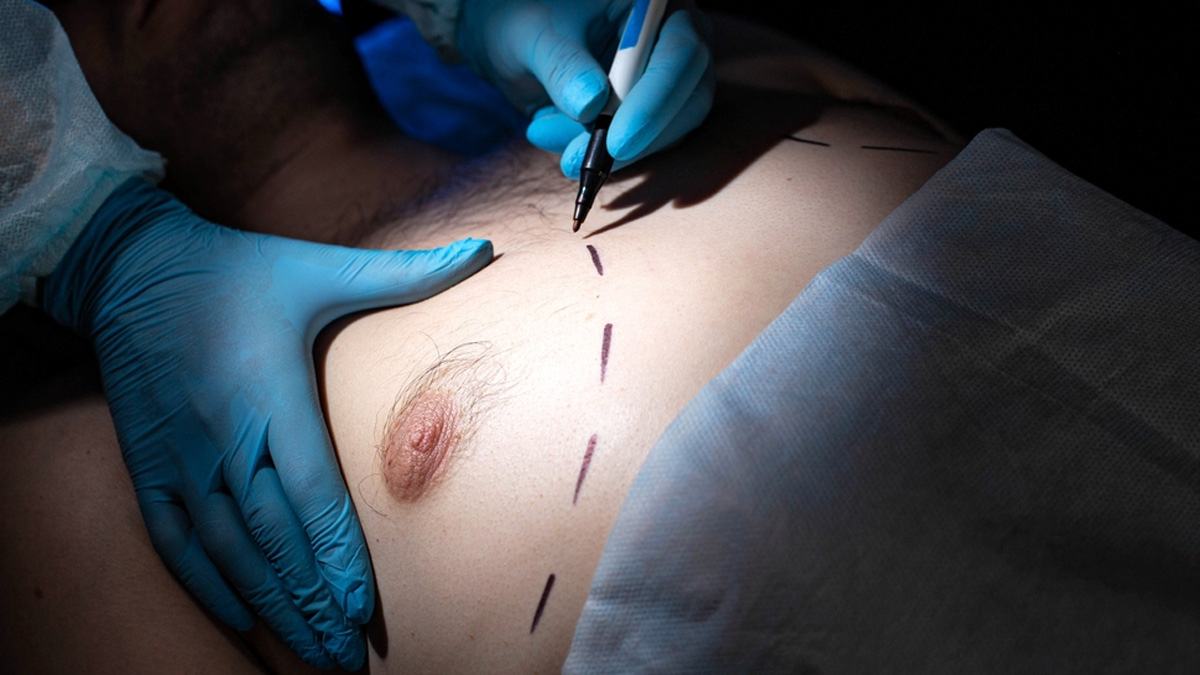
A recent BMJ Open study found that men with gynaecomastia, a condition where men develop enlarged breast tissue, are at a higher risk of death. Researchers noted that it is especially increased in men with underlying health conditions that can contribute to gynaecomastia. While the data is concerning, Dr Akhilesh Kr Agarwal, Consultant Plastic Surgeon, Fortis Hospital, Anandapur, Kolkata, says that the condition is not directly associated with an increased mortality risk.
Table of Content:-
But what is gynaecomastia, what causes it, and is there a way for men to tackle it? We asked the expert, and here's what he had to say.
Also Read: Link Between Male Infertility and Prostate Cancer: Expert Shares Insights and Tips for Men's Health
What Causes Enlarged Breast Tissue In Men?

According to StatPearls Publishing, the cause of most cases of gynaecomastia is idiopathic, meaning an unknown cause.
However, Dr Agarwal says that enlarged breast tissue in men, or gynaecomastia, can occur due to hormonal imbalances, particularly an increase in oestrogen or a decrease in testosterone levels.
He explains that this imbalance can be caused by various factors, including puberty, ageing, obesity, use of certain medications (like steroids or anti-androgens), alcohol abuse, and underlying health conditions, such as liver or kidney disease.
How To Identify Gynaecomastia?
Gynaecomastia can often be confused with normal breast tissue changes, leading to delayed diagnosis and treatment.
Dr Agarwal recommends observing and understanding the nature of the enlargement. He says, “Gynaecomastia typically presents as a soft, rubbery mass beneath the nipple area and may affect one or both breasts. Unlike normal fat tissue, it feels more firm and glandular.”
Additionally, any rapid growth, hard lumps, or discharge should prompt medical evaluation, he urges.
Potential Health Risks Associated With Gynecomastia

Dr Agarwal is of the opinion that gynaecomastia itself is not typically associated with severe health risks.
However, it can cause psychological distress and social discomfort. For instance, teens with gynaecomastia can become loners, as they may avoid socialisation and may go into depression.
Research also suggests that young people with gynaecomastia become depressed, isolated, refuse to participate in any activity that involves removing the shirt, and have low self-esteem.
Some early signs include avoiding mixing with friends, wearing loose shirts, and tying tight chest binders.
Also Read: Imbalance In Hormones In Men: Here Are 10 Signs Of It
How To Manage The Condition

It is important that men consider seeing a doctor if their breast tissue is painful, rapidly enlarging, or accompanied by symptoms such as nipple discharge or lumps.
During the evaluation, a doctor may perform a physical exam and order tests such as blood tests, mammograms, or ultrasounds to determine the underlying cause.
Remember, if untreated, enlarged breast tissue in men can lead to significant lifestyle impacts, including social withdrawal.
While lifestyle changes may not effectively reduce the tissue, Dr Agarwal says that the primary treatment is surgery, which typically involves liposuction and removal of excess breast tissue. This is usually a day-care procedure with simple postoperative precautions needed for 2-3 weeks, he concludes.
Also watch this video
How we keep this article up to date:
We work with experts and keep a close eye on the latest in health and wellness. Whenever there is a new research or helpful information, we update our articles with accurate and useful advice.
Current Version